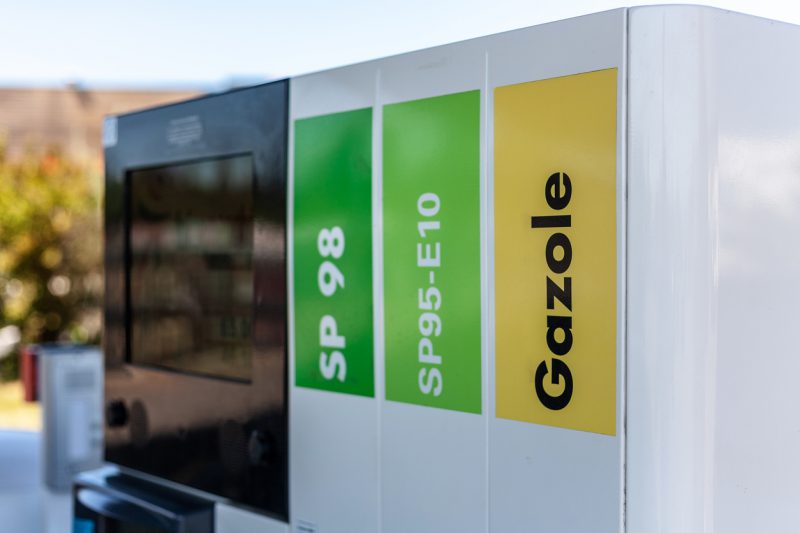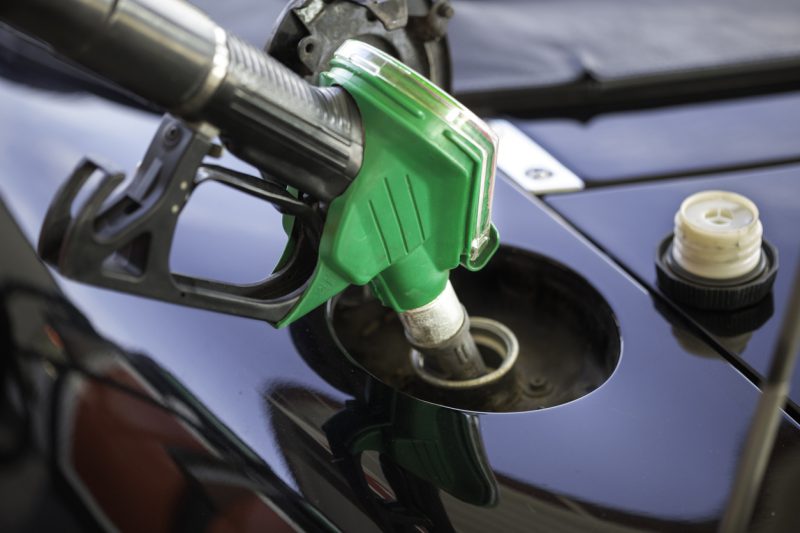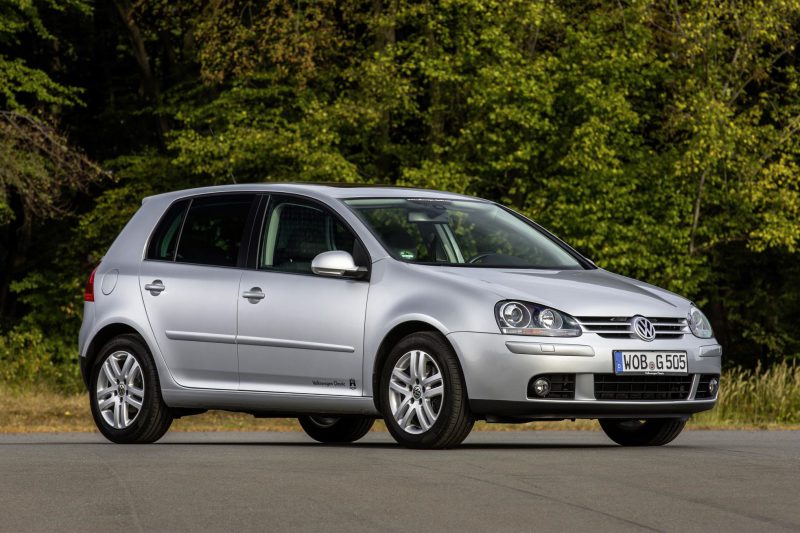
A new fuel, called E10, is now the standard petrol available in the UK. However, this new petrol may not be suitable for all vehicles. Read on to find out if you’re going to be affected.
What is the new petrol?
Until now, regular petrol has contained 95 per cent unleaded petrol and 5 per cent bioethanol. It’s called E5 and can be used in most cars without engine modification. The new petrol, E10, is slightly different, with 10 per cent bioethanol in it.
Why is the government switching to E10?
The government claims the move to E10 will reduce carbon dioxide (CO2) emissions by around 2 per cent compared to E5. The result would be a cut in overall transport CO2 emissions by 750,000 tonnes per year. That, the DfT says, is the equivalent to taking around 350,000 cars off the road.
So, what’s the problem with E10?
E10 is a slightly different fuel make-up to E5. In older engines, it may cause pre-detonation (also known as pinking or knocking). This is when the fuel air mix doesn’t explode in the cylinder exactly when it should. Putting E10 in a non-compatible car may also make the car difficult to start.

Will the new petrol harm your car?
If you use E10 in a non-compatible car over a long period of time, it may cause lasting damage to the engine. Bioethanol has corrosive properties and Department for Transport (DfT) research suggests it can damage hoses, seals and plastics in engines that aren’t compatible. It may also harm fuel pumps and carburettors.
But, that’s over a long period. Just filling up once with E10 should be fine, although the engine may be slightly harder to start and your vehicle may run a bit rougher. Experts say you should add regular E5 petrol as soon as the tank has emptied.
Which cars can use E10 without any issues?
All petrol cars sold since 2016 must have engines that are optimised for using E10 petrol. If your car is registered from 2016 (16/66-reg) onwards, you don’t have to worry – you can use E10 without any problems.
All petrol cars registered in 2011 (11/61-reg) and beyond should be compatible too, but drivers should check with the manufacturer.
Which cars shouldn’t use the new petrol?
There are currently around 700,000 vehicles on the road in the UK that won’t be suited to using E10. That’s around 3 per cent. The DfT says around half of these are classic or cherished vehicles that are expected to be kept on the road indefinitely. It believes the other half will be scrapped before 2026.
For cars made before 2011, the DfT advises owners check with the vehicle manufacturer to be sure. It said: “It is not straightforward to set out which vehicles produced prior to 2011 are approved for E10 use, as there are no clear cut-off dates for determining compatibility. Compatibility needs to be confirmed by manufacturers for each model.”
Some big selling cars such as petrol Volkswagen Golf FSIs, Nissan Micras and some 2.2-litre Vauxhall Zafiras, Signums and Vectras are among the vehicles that may be affected. These are models sold with first generation direct injection petrol engines. Confusingly it means a VW Golf made in 2007 (07/57-reg) may not be compatible for E10 while one built in 2005 (05/55-reg) would be.

What happens if you drive a classic car?
The DfT has said that while regular unleaded petrol will now be E10, super unleaded will remain as E5.
So, while classic car owners will still be able to fill up, it’s going to cost a little more.
To check if your vehicle is able to use E10 safely, head to the GOV website.
This blog was originally published in July 2020 and has been updated.
Yet the government refuses to tackle the main reason for increased pollution: couples having so many children, and uncontrolled illegal entry into the UK. How do these quantifiable problems compare with a claimed cut of TWO PER CENT in CO2 emissions. I have a 2007 VW Fox (5,000 miles a year at the most, almost zero since April) – am I being told to scrap it and spend my limited savings on a NEW car? How about the pollution created in making all these new cars? Try setting that off against the claimed 750,000 tonnes reduction of CO2 per annum. Big deal that I will still be able to get super unleaded. Great news for Shell and Esso!
After its handling of CV19, another government masterstroke!
I agree why doesn’t the government tackle the real issues, as you say over population of this country.
What would you suggest the government does to do that ? Birth rate is already below replacement rate. We already have problems with an aging population needing support from a shrinking workforce. We have seen the effects of sending home our European workers with Brexit. Do you really have any other bright ideas?
More rubbish from the government. They just cant help themselves spitting out this kind of rubbish.
As the owner of a classic car, I will be hit by having to fill it with Premium Unleaded, and as it only does 12 – 15 miles per gallon, it’s going to hit my wallet very hard. Must see about getting it conveted to run on LPG.
I’m in the same boat, I have an immaculate 1993 Nissan 300zx that I can eke around 17 miles a gallon out of in town. No room for an LPG conversion for me though. Luckily, I only do a couple of thousand miles a year on dry, sunny days.
My2014 Nissan Note DIGS states at filler point to use 95 Super. Nissan dealer suggested supermarket OK for local drives. I think super better cold winter months. Could it help starting?
Usually scum bag government up to their usual dirty tricks in causing damage to existing car engines and components on cars that are owned and paid for by the hard working taxpayer.
They allow Amazon to increase their fleet to deliver millions of parcels everyday while making them exempt from paying taxes, runways to be built at Heathrow which each plane burns 150,000 + tonnes of fuel on each flight, Energy companies to burn billions of tonnes of mineral fuels everyday while it deprives Humans the right to FREE ENERGY to run our homes, industries and self charging cars. Down with the Government.
I have a 2000 Honda Civic Sporti and always run on the higher octane fuel to give a better performance and also gives better mileage. The other car is a Renault, 2011 and they’ve been running on the newer fuels availability engines since France introduced the higher ethanol in 1997, bar a few exceptions, such as certain Meganes.
Like the Diesel saga of a few yrs ago Yes Diesel is the way to go ! Oops that’s a grave error of judgement
morals. what morals ?
My car is a Nissan Note registered in 2015. Can this be safely used with E10 petrol for all mileages. If not will Nissan take this up with Government ?
Dear X My car is a £30 road tax Nissan Note 2 2014, not 15, which appears to be OK re E!0. However. This appears to have been an imposed sneaky change by Govt with a disregard of the many older cars which will not be suitable. I have noted fuel prices for years and am astonished by disregard of higher cost of super/nowE5? despite many suffereing lower lock down incomes. I could suply more as a payable contributer writer for magazine. Eg First £1 UL. t Hikes espec diesel. Known high egs from 2017/ 8 and most expensive diesel I saw in 2019 . 2 fuel stait ons OTT since.. and now.
Was.special U…. UL really so bad it had to be sneakily scrapped?
With respect I should not have to provide pass word to see Ford offers which nay not be available for my budget and dislkke/ object to too many that want to impose cookies before proceeding.
Yours sincerely
Philip Pybus
As the UK only produces 1% of the worlds CO2 – what we do won’t make any difference – just a box ticking exercise. I can’t imagine China will shut its coal power stations – whilst we cripple the public here financially with this green folly.
Probably part of the plan to ruin petrol cars so people scrap them and get electric ones.
Electric cars are another folly – children mining the Cobalt required for the batteries.Cars will becomes worthless when batteries wear out. Use nuclear to generate electric – what could go wrong, or solar (in the UK!) or wind – very good when its not windy.
There is no scientic proof, the type we were taught about at school, that CO2 causes global warming. We have had it for last 10,000 years.. We have been producing CO2 for 100. It is still only a trace gas. Why has the North Polar ice receded over 10,000 years?
Will the road tax for petrol cars be reduced now the emissions are lower? I currently pay £240 for my Renault meganne
The government line at the moment, is driving us into a future where they can fully control our lives. Electric cars will have limited range, so we could be restricted to so many miles a week, month or year. That’s if you can even afford to buy one. They will be so dependent on everything running on electricity there will be power cuts or ration8ng of supply.
Energy is essential for every aspect of life, and prosperity. The UK will going bankrupt before our eyes because of this blinkered approach to climate change. Russia, India and China are not going to move at the same pace or at all. So why should our tiny country be bothering.